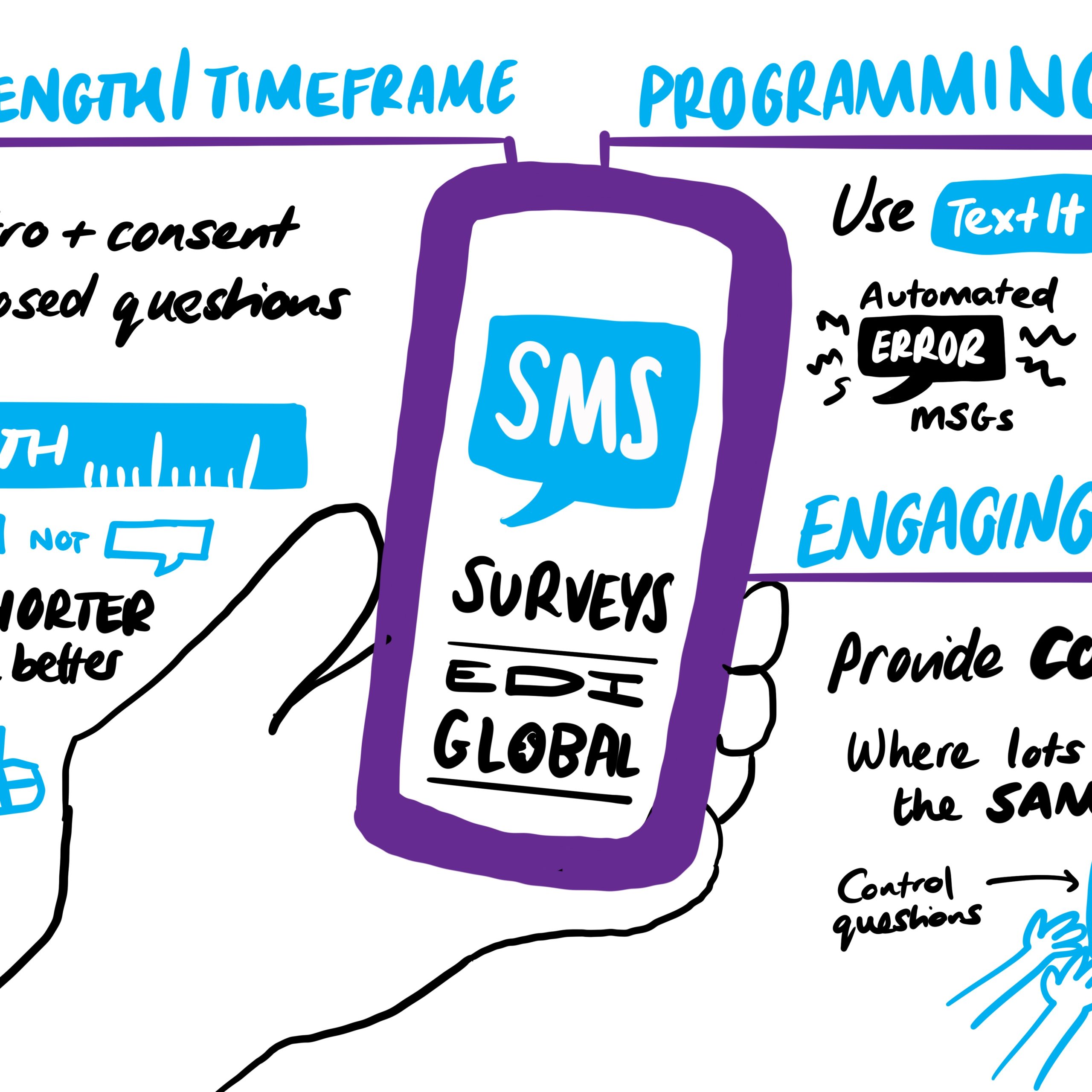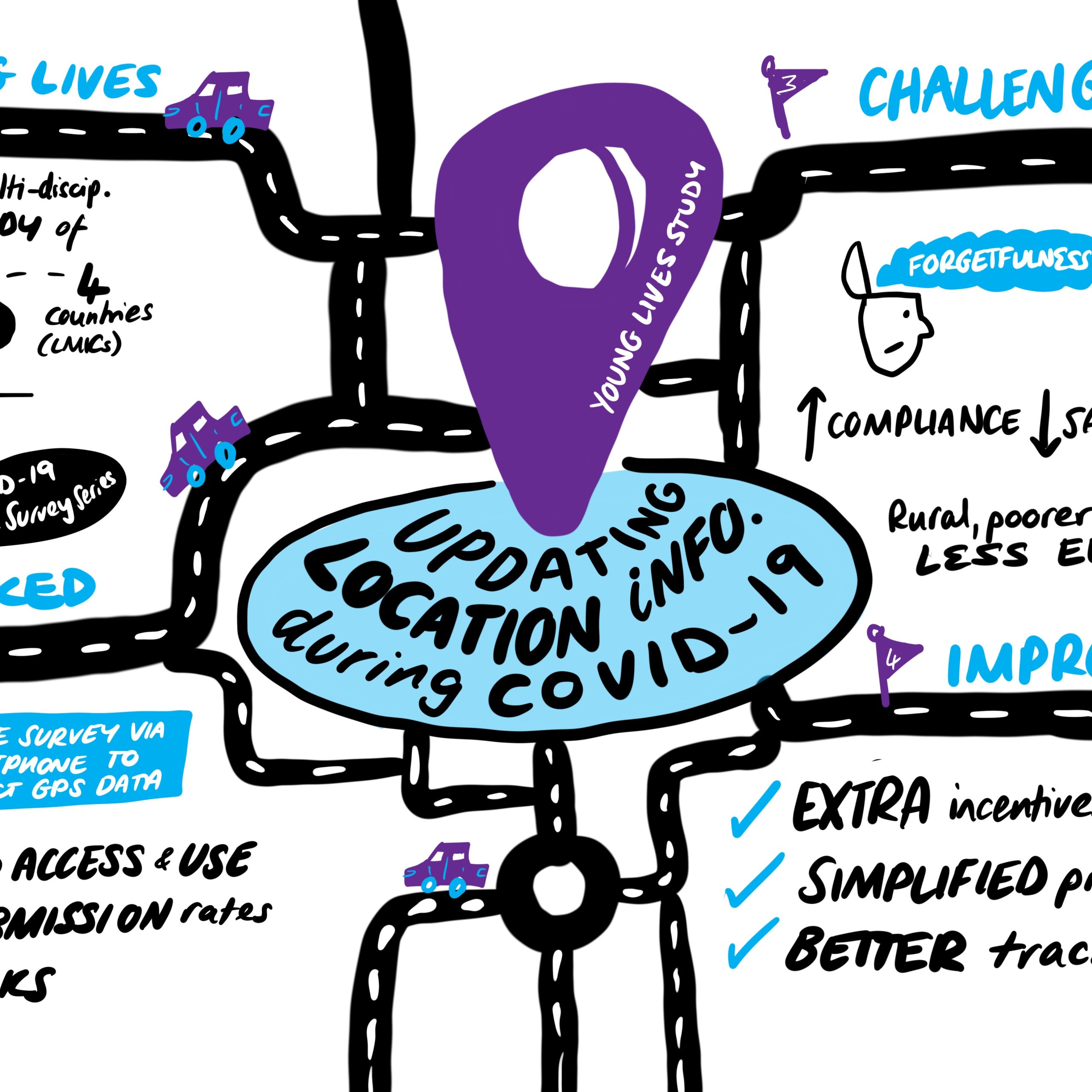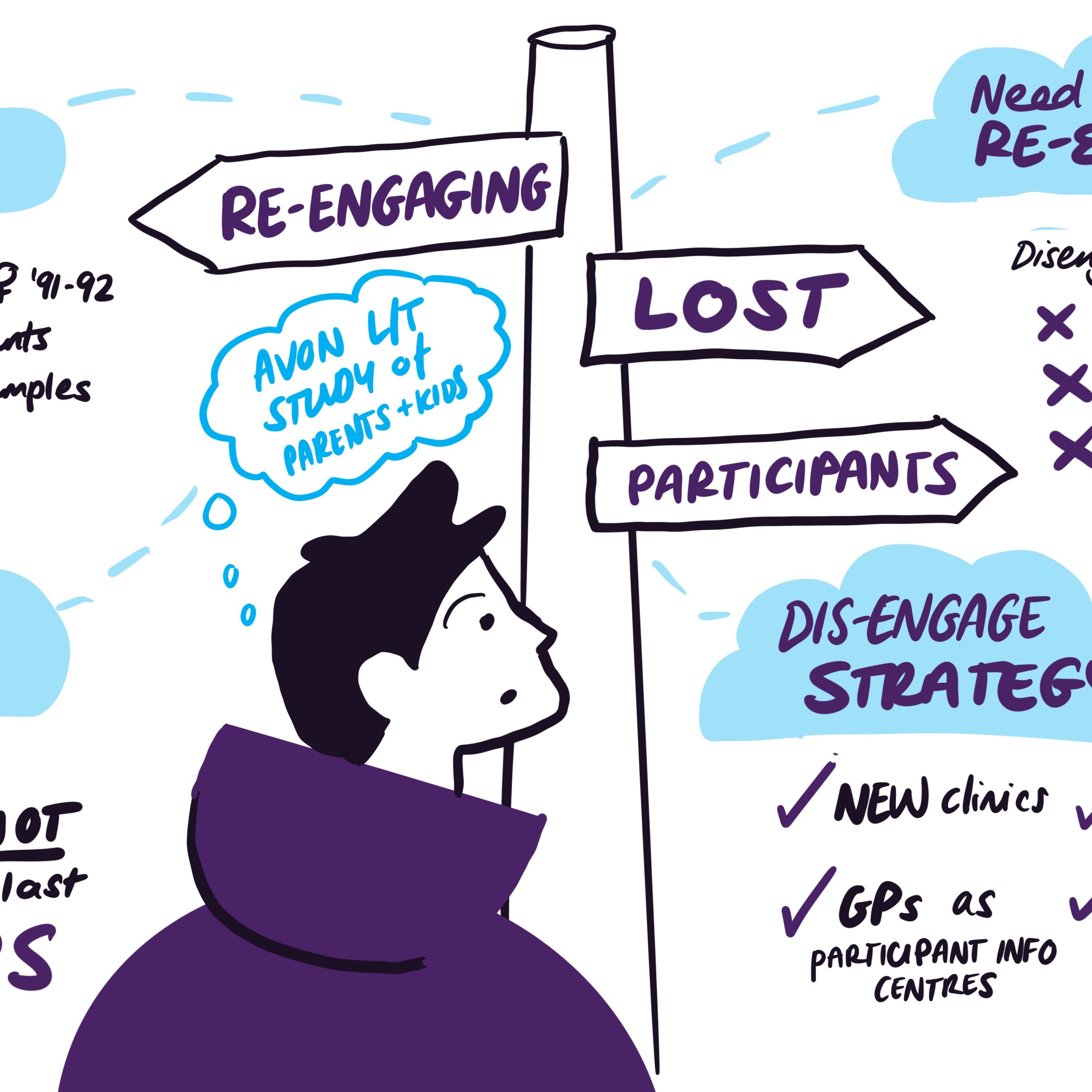Theme overview
The parallel sessions within new forms of data collection theme focused on the following issues. Select the presentation titles to download the slides as PDFs.
- Using innovative technology
Chaired by David Porteous, Generation Scotland- SMS surveys in the Global South: Insights from field studies in Tanzania
Johanna Choumert-Nkolo, EDI Global - “We hope to visit you again soon”: Updating location information from participants of a longitudinal studies during COVID-19 in four Low-Middle-Income-Countries
Maria De Los Angeles Molina, Young Lives
- SMS surveys in the Global South: Insights from field studies in Tanzania
- Experimental designs and clinics
Chaired by Paz Garcia, TwinsUK- Cohort Re-engagement Strategies
Sarah Sullivan, Avon Longitudinal Study of Parents and Children - Concurrent, Sequential or Web-Only? Evidence from a mixed-mode recruitment experiment in FReDA
Pablo Christmann, GESIS
- Cohort Re-engagement Strategies
Summary of key points
- Issues with new forms of data collection include costs involved and lack of participant familiarity.
- Mixing new data methods with existing techniques can maximise responses and reduce missing data.
- Studies need to consider ethics and trade-off of re-engaging past participants compared to active participants.
- Smartphones are ideally suited to short, closed studies (e.g. via SMS) or passive data collection (e.g. via GPS).
- Advantages including ease of use, reduced fieldwork and staff costs, whilst limitations include user bias, safety and security, and less participant engagement/trust compared to F2F ‘gold standard’.
- Text messaging is a useful method of prompting cohort members who are familiar with F2F contact.
Watch the talks from this session
Select the playlist icon (top far right corner) to choose which individual talk to watch.
View the talk illustrations
Select the images below to enlarge or download the New forms of data collection illustrations as a PDF.
Explore the conference report
Panel sessions
- Designing and implementing new longitudinal population studies: opportunities and challenges in a post-COVID world
- Mobilising longitudinal population study data and research in the policy landscape
Conference themes
- Data linkage
- The impact of COVID-19 on longitudinal population studies
- Influencing policy
- New forms of data collection (currently viewing)
- Participant and public engagement
Further conference materials



